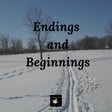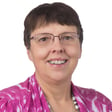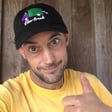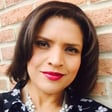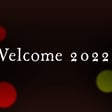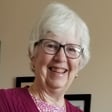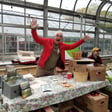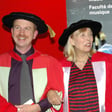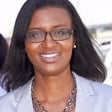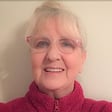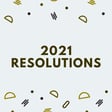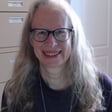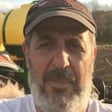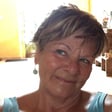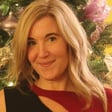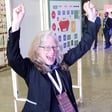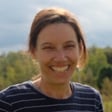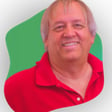Become a Creator today!Start creating today - Share your story with the world!
Start for free
00:00:00
00:00:01

Easy Customer Learning with Dave Howard
This week, I interviewed Dave Howard, an expert in strategic customer education for anyone offering software as a service. Dave's experience in videography, software creation and online courses gives him the background he needs to help his clients teach users to get the most out of their technology.
Transcript
Introduction and Guest Introduction
00:00:00
Speaker
At Jared, we have a brilliant selection of beautifully crafted diamond engagement rings and certified loose diamonds so that you can find the perfect one for your one and only. Best selection, best prices. Enjoy the Jared difference today. Jared, love brilliantly. My name is Tracy Ariel and I am an apologetically Canadian.
Impact of COVID-19 on Work Life
00:00:30
Speaker
And this week we are speaking with Dave Howard, who is one of the entrepreneurs that I've met through the Miracy community, and he lives in Port Albert. How are you, Dave? I'm good, Tracy. How are you? Not too bad. So can you tell me a little bit about what's been happening this week? Well, the sun is shining as it always does in British Columbia, as you know.
00:00:53
Speaker
Great, actually. I'm just getting quiet here in Port Alberni. I like being in this space in terms of having less hubbub and less of the world pressures going on. I've been working from home for ages, so the circumstances right now don't really change how I do things on a day-to-day basis. So it's pretty comfortable, and lots of work seems to be pumping up, so that's all good, too.
00:01:15
Speaker
Yeah, because we're still in, well, as we're recording this, we're still in the midst of COVID-19 and everybody is staying at home. And so for people like us who tend to do a lot of things online, work is not stopped. But it does feel weird anyway, somehow. Yeah, it's certainly different. Yeah, it's certainly different. Although
00:01:40
Speaker
As I've said to several people, my wife and I are usually here anyways, and so it hasn't changed as much. And we've been fortunate at BC, I think the curve is starting to turn a little bit here, and we haven't had a lot of the concerns that you might have in larger centers like Montreal or Toronto or even Vancouver.
E-learning Ventures and Success Stories
00:02:00
Speaker
So it's been not too bad. Right. Right, right. So can you talk a little bit about what you do?
00:02:07
Speaker
Well, what I do is I work with people to help them to build better and more effective online learning. And I have a couple of focus for that. One of them is to work with people in the customer education field, people who are developing online learning material to support people who sign up to use their product or service.
00:02:26
Speaker
And what I'm working with them to do is to help them to build that material so that it's more effective for the end customer, gets them to the results they're looking for faster, easier, and is also easier for them to develop and maintain. So lots of times what we find is that the challenge for developers of the content is that there's a lot of things they want to develop and they're not sure how to go about it in the most efficient way. So I can help them with that.
00:02:51
Speaker
And then the other area I work is with past clients from my gaming business, which I still support. So I support users and help develop some content for more conventional online gaming courses with association. So what do you call yourself?
00:03:07
Speaker
I call myself an e-learning re-evolutionary. Oh, that's cool. Or an online learning revolutionary. What I like to do is think of it as going back to the way things have been done and rethinking them and redoing them in a new way that works well for everyone concerned. My interest always is trying to find the easiest solution for people that gets win-wins for people happening.
00:03:33
Speaker
Can you tell me a little bit about one of the success stories of somebody that you've worked with and got some good results or something that got you into the business that you're doing now? I was thinking that in some ways the best success story that we've had was the success story that launched my e-learning company in 2006. I'd been working with an associate on a number of e-learning projects just as co-independent workers and then we decided we would
00:04:03
Speaker
take on this project from the Building Owners and Managers Association of BC to develop online learning for building operators. And it was an unusual training in a way or an unusual contract.
00:04:15
Speaker
because it came to us when the company that had originally bid for the project and one started to get into financial trouble and weren't able to actually do the development side of things. We hadn't even heard about this project being out there. And just through a network connection that I made, somebody said, hey, you might be able to take this project on for us. And we ended up taking on the entire project and the other company just faded away, disappeared shortly after we got involved.
00:04:41
Speaker
And we've maintained the relationship with those people for now 14, 15 years. And right now, actually, I'm working on an upgrade to that course where we're taking it all out of the technical format that was in before and moving it into video. So it's been a great long-term project. We've been,
Challenges and Innovations in Course Development
00:04:57
Speaker
what we always try to do with my e-learning company, and I try to deal with my own business, is end up sitting on the same side of the table with the client. In other words, we're looking for the same results. We're looking to
00:05:08
Speaker
all win on the same basis. We're not in any kind of adversarial relationship where they think I'm going to try to overbuild them or I'm going to try to get more hours from them, that sort of thing. So we've had that kind of great relationship now for a decade and a half with BOMA, including doing a national version of the program. So I like to think of that as really emblematic of what I've always tried to do in my business success story that I'm happy to work, promote or whatever say we didn't.
00:05:35
Speaker
Well, and the fact that you still have a relationship with them since 2006 that shows that there's a quality there and an appreciation for each other's skills. Well, and there's another interesting aspect to it, I guess, which I think of a lot, which is that
00:05:51
Speaker
We developed this contact for building operators. So that could be somebody who started working inside of a facility. It could be a mall or it could be an office building or something like that. And they may have started pushing a broom as a caretaker and worked their way up, or they may have come into that organization with some engineering degrees, basic engineering training. So a wide variety of
00:06:16
Speaker
backgrounds that end up in building operations. And those students in the course have universally praised the course and said they really love it. They found it very easy to use. They find it increased their capacity to do the things they wanted to do around energy management substantially. And to me, that's always been almost more important than how happy Bulma was with the course. If the end users are finding it useful and helpful, then that's a big win.
00:06:42
Speaker
Yeah. Now, when you're developing the course, are you developing it on some sort of platform or do you develop it on their own server or how do you go about doing that? Well, that's an interesting question because what we ended up doing is going through the process of actually creating our own software. We started with the idea of doing it with existing software of various kinds and finding a learning management system to run it all. And we couldn't really find something that did everything we wanted
00:07:10
Speaker
at a price point over a capability point that made sense for BOMA to invest in. So we actually had a person on staff who was very eager to learn how to build some of this stuff himself, and we ended up building our own system. So that was a plus in that we
00:07:25
Speaker
had to throw total control over all the elements of the project from that standpoint it's a minus because in the end there's nobody else that knows how to work on that content or keep it going and since we weren't really in the software development business for the long term that's part of the reason that I'm working now on this current project
00:07:44
Speaker
to take all of the content out of the system that we built it in and move it into a new system and use video instead of flash technology, if people are familiar with that, which is now coming to the end of its useful life on the web. So browsing bonds to the way we did it. Well, it worked. And it would probably, the content has to be updated every now and then anyway. That's true. Yeah. I think it was an interesting learning experience too, because we found that
00:08:11
Speaker
we had become a software development company without really anticipating that we were becoming a software development company. And so that was a good learning experience for my business partner and I to read us how different that was, how much it made a difference, how we organized the business and how we ran it and how we structured projects if we were developing software as opposed to creating e-learning content.
Career Reflections and Lessons Learned
00:08:35
Speaker
Right. And well, that sort of leads to the next question, which is what do you consider your biggest failure and how did you learn from that? Well, interestingly, I would take my biggest failure and take it out of the entrepreneurial world, but it did actually have a major impact on coming back into the entrepreneurial world.
00:08:54
Speaker
And that is that I worked for a period of time teaching my background as video production. So I taught a video production course in a private post-secondary institution here in BC for a number of years and developed with them as they grew into other areas like computer graphics and various areas. Because they were growing fast, it got to the point where the two people that owned the business thought they needed a general manager to run the organization. And because we'd had a fairly long and good relationship,
00:09:19
Speaker
They asked me if I was interested in doing that and I thought well that would be an interesting challenge and I took it on and I did it for about two years and I think I was marginally successful at it but only marginally because what it taught me was the skills again I'm a general manager are very different than the skills of an entrepreneur or
00:09:36
Speaker
a developer or an instructor. It's a lot about just keeping track of all the little new tide that's happening day-to-day and making sure that everybody's happy and everything's moving forward. And I was not particularly good at that. So what it taught me was when I go back into my own business, I need to look for opportunities to get the kind of day-to-day grunt work that I don't do well, taken care of by somebody else so that I can focus on the things I'm strongest at.
00:10:05
Speaker
Oh, that's a good realization. I think all entrepreneurs need to do that quite often, actually. It's not an unusual challenge for us, I think, bringing it. Well, as we were at the other day, there's always new learning and sometimes it's painful that you have to learn something new, but it's usually something that moves you along the path in the right direction. So that's good.
00:10:29
Speaker
Yeah, well, I mean, it's been interesting because listeners won't know. But the reason that Dave and I have met is because we're both part of a an online, basically coaching session about courses. And it's a it's been a fabulous experience because we get to know people from around the country, which is why I'm in Montreal. And he's in Fort Alberni. And we still know each other, which I think is awesome. Have you had other good experiences with the Miracy community?
00:11:01
Speaker
Oh, yeah, definitely. There are part of a couple of groups of people that meet on a fairly regular basis to just exchange ideas, one that just started about a little over a month or so ago. And it's been really interesting because we find we get together and we find that as a group of four people, we have great, deep, interesting conversations. We haven't quite figured out whether we want to just keep doing that and treat it as kind of mastermind with
00:11:27
Speaker
joint problem solving and things like that, or whether we want to take on a project together and kind of pool our various expertises which could meld together nicely and do something or something else. So that's been really enjoyable to do that. And then there are a couple of people within the MiRC community that I
00:11:45
Speaker
meet with or correspond with on a weekly basis, just kind of on the basis of an accountability partner, and then sometimes brainstorming ideas and sharing ideas. So for me, the real value of Merci beyond the coursework, which is great, has been the community and the people I meet through.
Building a Diverse Clientele and Team
00:11:59
Speaker
Yeah, well, and so many different entrepreneurs trying to do projects that really are making Canada better. I mean, it's a fascinating group of people. Can you talk a little bit about some of the people that you work with locally and in your industry? Yeah, we tend to just bring people on a contract basis when we need them and
00:12:24
Speaker
Uh, the work i've been doing for the last couple of years i've done primarily on my own. I don't don't have a lot of work where we're contracting other people, but when I have brought them on usually i'll bring on people with specific Skills like someone who's a hardcore instructional designer and really can get into the nitty gritty with the subject matter expert and figure out all of the content that needs to be
00:12:46
Speaker
communicated and how they might do each portion of it and write all that out. Again, that's going to wipe my general management experience, and I could probably do a lot of that, but I just know I'm not great at the detail of flushing it all out, so it would sit on the side of my desk for ages at a time when I need to get to it and don't. So that's my tendency is to hire good people that I've met, many of them virtually, certainly. I know even before COVID, not people that we were always meeting in person, but we're dealing with
00:13:14
Speaker
over the web and so some of them may live locally and some of them may live in other parts of the world and just bring them in on an as-needs basis with experience that will contribute to the project.
00:13:25
Speaker
Yeah, that's on the, on the colleague side, but what about on the client side? Can you talk a little bit about some of the clients that you've worked with? Oh, sure. We've worked primarily in the UN business with association clients of various kinds. So the Bowman organization that I mentioned, we did a
00:13:46
Speaker
big project for the BC Wildlife Federation. It was a program that was designed to teach people basic conservation and outdoor recreation skills that was in the school system. It was also the prerequisite to someone being able to apply for a hunting license in BC. And so there were everything from information about firearms and safety in all those areas through outdoor safety and
00:14:12
Speaker
you know, something that would be relevant to people who are hikers or otherwise out in the outdoors, first aid and things like that. So that was an interesting project. We have done and have an ongoing relationship with the Insurance Brokers Association of BC where we
00:14:28
Speaker
create content for them and host a website for them for broker education and so each year this is our busy time of year while brokers log in and get the training under their belt that they need to keep their license active so they have to have a certain number of continuing education points by the end of may so i often joke that we should have a separate website that tells you which is the which are the organized
00:14:53
Speaker
insurance brokers that do all this work back in September, October, January. And we're the ones that are doing it in the last two weeks of May to get it done before they run out of time. That would make it a bit fascinating infographic, actually. I don't think it would be different for most students. Oh, it's probably true. And then internationally, we did a big project with the World Resources Institute on greenhouse gases systems work.
00:15:20
Speaker
We kept tracking greenhouse gas emissions and created a project for them. And we've done some work with other large US organizations in various areas. So a variety of clients. That's what I like most about it. It's what I liked about being in the video business previously, is you could go into this, learn a lot. And then once you'd learned a lot, you could move on to something else interesting. You didn't have to keep doing it for the rest of your life. Sort of like the magpie tendency.
00:15:51
Speaker
Sorry. I imagine a lot of magazine writers and people think about it the same thing. I love the fact that I can dive in. I learned a lot, but I don't have to stick with it after I've learned to be happy.
00:16:02
Speaker
Yeah, yeah, no journalists. And basically, a lot of creative people are like that, actually, it's a, it's both a force and a strength and a weakness, I think, because it means you can actually that you're comfortable with change, which a lot of people are not necessarily. And it means that you learn quickly. But it can also mean that focusing can be a challenge as really as we were talking about in our Facebook group about
00:16:29
Speaker
the challenges we share about in focusing. Exactly. I think somebody in a discussion I was in last week called a scanner. So the kind of people that are custom looking for new and interesting things in our environment and love to get into them for a bit are always looking for the next new and interesting thing as well.
00:16:49
Speaker
Yeah, well, and well, it definitely makes for a great life.
Client Relationships and Creative Collaboration
00:16:54
Speaker
So that counts. Now, as you know, the last question in our conversation talks about your attachment to Canada and whether you consider yourself a Canadian. But before we get to that, is there anything about your business and about your entrepreneurship that I didn't ask that you were hoping to talk about? I mentioned trying to get on the same side.
00:17:18
Speaker
of the table with your clients so that everybody's working with the same objectives and with trust that it's going to work out for everyone. I always like the, I think it's attributed to Teddy Roosevelt, the quote that nobody cares how much you know until they know how much you care. And so I've always tried to build the business based on that. Action is important, persistence is important, but most important I think is having your clients understand that you care about what they're trying to accomplish and their goals and objectives as much as your own.
00:17:47
Speaker
Now, do you have a process for making that happen? I don't know that I have a process. I think I do that fairly naturally. And one of the things I'm fortunate to be fairly skilled at is when I get into a meeting with a client to put committees and other people that I understand, I am the kind of person that tends to like to ask a lot of questions and listen to a lot of answers before I start volunteering information.
00:18:10
Speaker
which usually puts people at ease that I am concerned that I know what I'm talking about before I start spending much solutions for them. So I think, you know, I don't know that I have anything that I would think it was the process except the way the libraries naturally interact with clients. Well, and as a videographer, you have an overview of the picture too, which doesn't that help somewhat? Yeah, that's true. I guess there's kind of two pieces to that, I think.
00:18:39
Speaker
there's there's the big picture view of things and understanding kind of how the conversation you're having now or the project you're talking about now fits into a larger context and then lots of times it's something else that a lot of entrepreneurs will particularly consultants and coaches is that almost every client thinks they're different and yet age is what you're going to end up talking about it's exactly the same as all your other clients and they do things the same way and somehow you have to create to maintain
00:19:07
Speaker
sort of rapport with them and let them feel comfortable in believing that they're different and special and maybe more than 20% of the ways that you're interacting with them. It's interesting to me sometimes though, easy as once you get inside of a bubble to not realize how many other people are doing much of the same thing you're doing and it's your secret sauce on top that makes the biggest difference in your business over someone else's.
00:19:31
Speaker
Yeah, that's a little bit the same as in writing, too, actually, because the story is significantly different. But you can have the I mean, there's not that many structures that work. But by giving someone a structure, their actual strength shows up. Right. Yeah, that's interesting. Yeah.
00:19:48
Speaker
So yeah, it's definitely a similar kind of process, I think. I mean, I always like talking to visually oriented people because the kind of way you think and the kind of way I think is completely different. And yet we get, a lot of times we still get into the essence of what the story is. Oh, that's interesting. Yeah.
00:20:11
Speaker
Because a writer tends to be very detail-oriented and organized and a visual person tends to be very big picture-oriented and much more flexible. But you can still pull out the strengths of a story because of that. That's what I was thinking as you were talking about. Right. So you use the euphemism big picture and flexible for disorganized?
00:20:39
Speaker
Yes, I guess it's not disorganized because it's not, when you're a creative person and you're that style of creative person, it's not that you're disorganized, it's that you're multifaceted. I think that's a better term for it than disorganized. We can be comfortable with it. I've been being facetious. I certainly think that you're right, that there's a
00:21:05
Speaker
There's an approach to things that kind of cut his big picture down to detail and an approach that I attribute more to a journalist, a good journalistic or a good writing view, which is to kind of build the story from the small pieces to the larger pieces. And those two can come together really effectively. And certainly in video production and film, they often work in parallel to get a great result. You know, you have the big picture people and the visual people on one side of the equation, and you have the writers and the detail people on the others.
00:21:34
Speaker
And they have to work together effectively in order to get a great product. And when they do, it can be spectacular. But if the crew is really oriented one way or the other too strongly, the results are not as good. Yeah, no. I mean, that is the creative process when it's working well. When you get someone else with the opposite perspective or just a different perspective, it doesn't have to be opposite.
00:21:57
Speaker
and you can work well together, you can actually put together something very strong. I mean, and we see that, you see that in all of the success stories too, where you have the team, there's usually a very operational, anal type person and a very creative person. That's how the two, people think that to be organized means not to be creative and it's not quite the same.
Cultural Reflections and Personal Journey
00:22:22
Speaker
Right, right.
00:22:24
Speaker
You know, I think it's pretty true. I mean, but I think back to my experience when I mentioned my experience generally managing at the school, the two people that started the school, one of them was totally about marketing, totally about throw anything against the wall and see if it would stick. Always thinking about spending 20 times more money than they had. And the other was the business-oriented person who was always, well, this is what we have for a budget. Here's the six things we actually have to accomplish this week despite all the things you're excited about. And it was the tension, you know, they
00:22:53
Speaker
They were people who loved each other but fought very strongly with each other at times as well because they so protected their turf. But if either one of them had been on their own, they would have not achieved any of the success that they did together. Yeah, yeah. Actually, it's fun. My kids primary school was very much like that too. The two founders were opposites in that way. So I think it is a team definitely needs both sides of the equation. And you were talking about the creative world and
00:23:22
Speaker
You think about film and things like that, you do see that quite often where someone will have film that they work on with a team of people and be very successful and then leverage that success into not having the same control over the next project they do, which just goes into the dumpster because they're doing it all from their side without the benefit of the other side that made that first thing so successful.
00:23:43
Speaker
It's good to keep in mind that teams do need a balance of talents and a balance of abilities and passionate people on both sides to make their point and make sure it gets heard.
00:23:54
Speaker
Yeah, Dan Sullivan actually has a really interesting story about that because he was going to talk to his, he's had an accountant who's or a bookkeeper who's been working for him for something like 15 or 20 years. And he once went to her and said why she loved her job so much because he couldn't even imagine doing it. And at one point she said, you know, I love this job because you just never know what the day is going to bring. So for her,
00:24:17
Speaker
For him, looking at what she did was the same thing every day. And yet because she was a numbers person and because she could see the stories that the numbers told, she was actually someone who appreciated the change and the differences that each day brought. And so I think it's very important to recognize that everybody has a different level of the stories that they can see because of the patterns that they recognize. Yeah, I like that. The stories that they can see in the same
00:24:46
Speaker
the same inputs are seen differently by different people, and that's a good thing. Yeah, yeah, no, it's definitely. So as you know, the last question is, do you consider yourself a Canadian? And if so, what does that mean to you? Well, I absolutely consider myself a Canadian, fortunate, I guess, to be born and raised in Canada, mostly in BC, but I lived in Ontario for a long time. And I think what it means to me is I feel like Canadians are uniquely
00:25:16
Speaker
open and flexible in some ways about the way that we see the world and an ability to kind of sit back from a lot of events and see them in a more introspective way or maybe again it's that sort of we often are better at the big picture than it seems some other nations are particularly when
00:25:35
Speaker
Crises come along or things are difficult. We can kind of see both sides of the story. I think we're fortunate to be. A little bit smaller, so we're not at the center of things because I think that puts pressure on you. When you're the US or China or the past, the Soviet Union, there's a certain pressure on you because you're always assumed to have an opinion on everything. Whereas.
00:25:56
Speaker
Canadians have the benefit of being able to offer an opinion and have it respected when they have something to say. We can often sit back and not participate until later if they don't really have a need to get going. And I sort of like that sensibility generally. I think it creates strength and it creates opportunity.
00:26:16
Speaker
And I guess facetiously, I think about something I read a little while ago about people talking about Canadians always saying they're sorry. And this meme was, you know, someday Canada is going to take over the world and then you'll all be sober.
00:26:32
Speaker
I like that. Given the name of my podcast, I think it works really, really well. You said that you lived in Ontario for a little bit and that you grew up in BC. Where were you born?
00:26:51
Speaker
I was born in a little community off the north coast of Vancouver around here called Alert Bay. Some people have heard of because it has quite a strong First Nations history, but it was a very small place when I was born there. And then I lived in a number of smaller communities in BC when I was growing up for the first decade or so of my life. Places like Ocean Falls, which still exists, but there's maybe 20 people live there now. It was a big pulp and paper mill. And we lived in Prince Rupert, which is
00:27:20
Speaker
reasonable sized city on the north coast of BC but small by most city standards and then we lived in a place on the island here called Campbell River which was also a fairly small community. Then I lived in Toronto for about 20 years and as I often have said to people I realized after 20 years if I didn't do something about it I might end up living there my entire life and that would be a disaster so we got packed up and came back out to BC and lived in Vancouver for a number of years but I'm really happy to be over on the island again now it's a slower pace of life and
00:27:50
Speaker
Lots less to like over here. How long have you been there? Just about a year and a half now. Ah, so you're still a new resident. I never think of a place as being a home until I've been there three years.
00:28:03
Speaker
Yeah, well, it's true. We're living here as my parents, which we held on to after they passed away. And we had decided, my wife and I decided we thought that the island is probably where we'd like to quote retire and quote, if people do that thing, that sort of thing these days still. And so we thought we would come here because it was a sort of central place to live and an inexpensive place to live for a while. And decided if we wanted to stay here,
00:28:28
Speaker
here being this house or here being this community either and go also check out other places on the island. Figure out where we might want to spend our glory years, let's say, in a few. So that's what we've been trying to do prior to getting locked down in Port Elberty with the COVID virus.
Conclusion and Sponsor Messages
00:28:45
Speaker
Yeah, wow. None of us expected that. It's not.
00:28:54
Speaker
Well, thank you very much. I really appreciate learning a little bit more about you. Well, it was great to chat. I appreciate your interest and it was a great idea to have this podcast for us unapologetic Canadians. Thank you for listening to Unapologetically Canadian. This episode was brought to you by Profile Your Business. You struggle to tell your business story well, profileyourbusiness.ca.
00:29:38
Speaker
When it's time for an adventure on the open highway, one quick call to American Family Insurance gets you headed in the right direction. Our travel peace of mind package is there if you encounter a bump in the road. From roadside assistance to rental car coverage, we have you covered. Find a local agent or get a quote at amfam.com. American Family Insurance. American Family Mutual Insurance Company, SI, and its operating company, 6000 American Parkway, Madison, Wisconsin.
